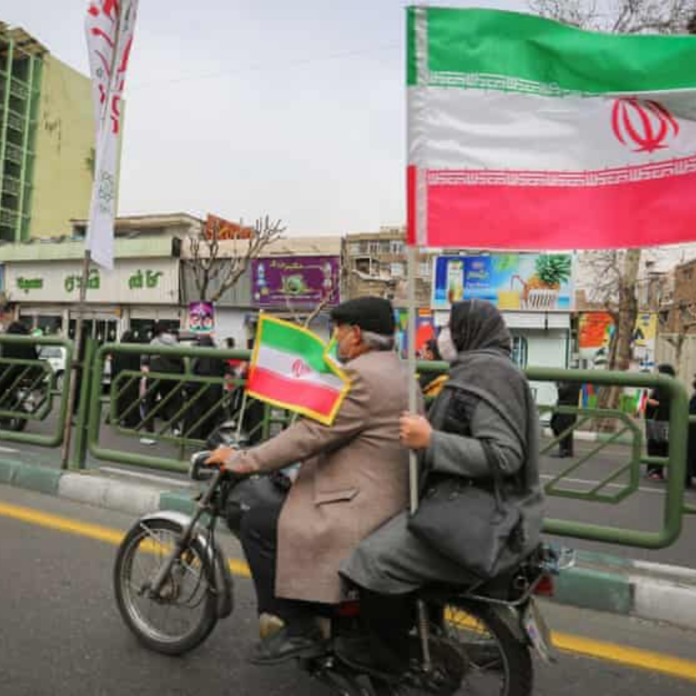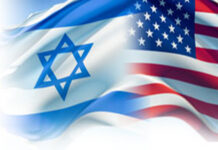
Prime Minister Naftali Bennett slammed a potential deal regarding Iran’s nuclear program at the Conference of Presidents of Major American Jewish Organisation in Jerusalem on Sunday.
Bennett told delegates of major American Jewish organisations that whilst Israel was watching events in Vienna between world powers and Iran in a bid to resurrect the 2015 nuclear deal.
“We are deeply troubled by what we see,” he said. “For Israel and for all the stability-seeking forces in the Middle East, the emerging deal is likely to create a more violent and less stable Middle East. While there is no doubt that America is our biggest and strongest friend, ultimately it is us who live in the region, and it is us who will bear the consequences.”
Bennett explained that Israel was not against a deal but there were major concerns about the Iranians who were at a “very advanced phase” of the uranium enrichment project.
“They have crossed one red line after another, including enriching at an unprecedented rate of 60%,” said Bennett. “There’s no point in playing the blame game. We need to address the challenge.
“The single biggest problem with this deal is that in two and a half years, which is right around the corner, Iran will be able to develop, install and operate advanced centrifuges. In the meantime, as an advance payment, Iran gets billions of dollars in frozen assets and access to the booming energy market. Much of this money will be funnelled towards attacking Israel.”
Bennett highlighted key points to address.
The agreement would leave Iran with a fast track to military-grade enrichment by allowing it to store and not destroy advanced centrifuges developed in recent years in contravention of the JCPOA deal.
The Iranian regime is insisting on closing open files of the IAEA. These are ‘hot investigations’. The concern is that Iran has hidden and is still hiding nuclear-weapon related materials.
The agreement will pour billions of dollars into Iran’s terror network meaning more attacks on ships, more rockets on Israel and US allies through Iran’s proxies.
Bennett was clear a deal would create new challenges for Israel’s security but Israel would prevail.
He said, “Nobody in his right mind should invest in a country whose number one export is terrorism.
“Israel, on the other hand, is stronger than ever, growing by 8% in 2021, a year of COVID-19. Our economy is booming and will continue to grow.”
Bennett added, “We are building unprecedented military capabilities. It is our duty to provide security to our people, while being a reliable ally to our friends. There are challenges, but we are up to them.”
Israel’s leader continued, “Israel won’t accept Iran as a nuclear threshold state. We have a clear and un-negotiable red line, Israel will always maintain its freedom of action to defend itself.”
Israel’s premier was due to meet elected officials US Democrats and Republicans this week.
“Despite the differences we have on this agreement, our relations with President Biden and his administration will remain close and strong,” he noted. “We will continue to focus on Israel’s security.”
The 50-person delegation included leaders from the Conference’s 50-member organisations and National Leadership Council.
Delegates heard talks from Israeli politicians and leader’s on various topics including Holocaust denial, Israel’s northern border and Jewish-Arab Relations.
President Isaac Herzog, Defence Minister Benny Gantz, Foreign Minister Yair Lapid, Transportation Mini Merav Michaeli, Minister of Public Security Omer Bar Lev, Minister of Diaspora Affairs Nachman Shai, Minister of Justice Gideon Sa’arl, Minister of Regional Cooperation Isaawi Frej, Opposition Leader Benjamin Netanyahu, Speaker of the Knesset Mickey Levy, Yad Vashem’s Dani Dayan, Natan Sharansky, Haim Bibas, Mayor of Modi’in Maccabim Reut, Michael Vidal, Mayor of Ramle, Amir Kochavi, Mayor of Hod HaSharon and Mahmoud Assi, Mayor of Kfar Bara participated.
US Ambassador to Israel Thomas Nides, Bahrain Ambassador to Israel Khaled Yousif Ahmed Alialahma, Morocco Ambassador to Israel Abderrahim Beyyoudh, United Arab Emirates Ambassador to Israel Mohamed Al Khaja and Ambassador of Jordan to Israel Gassen Majali joined in a discussion to celebrate the Abraham Accords.
Delegates visited IDF bases and received an overview of the security situation.
Speaking ahead of the Mission, Conference of Presidents CEO, William Daroff, commented, “The threats faced by Israel, and the Jewish community around the world, have not gone away because of the pandemic, indeed, in many ways some issues like antisemitic attacks, and the threat of an Iranian nuclear weapon are in sharper focus than before. It is also important that we engage on the issue of the relationship between Israel and the Diaspora, after two years of being unable to travel and stand side by side as we are so used to doing.”









